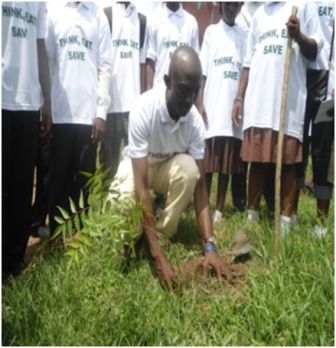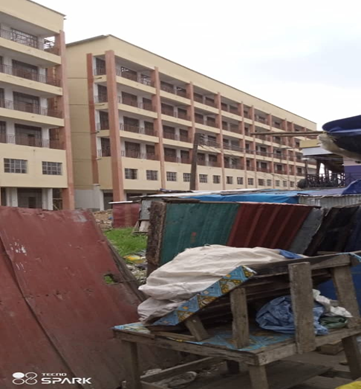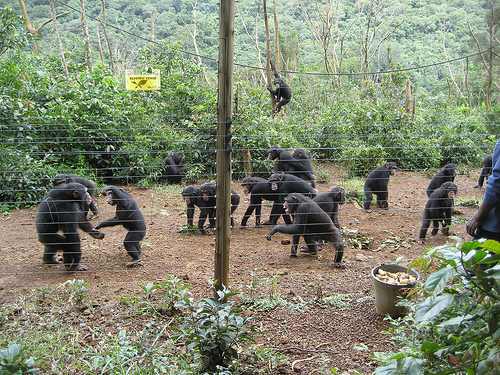A wake up call on timber
Al Jazeera decided to investigate the major subject of forestry in Sierra Leone, but chose to do so under the hackneyed concept of corruption rather than Industry, and the problems of deforestation world-wide. (Photo: Sqn Ldr Winston L T Forde RAF Ret’d, author)
Timber exports from Sierra Leone began in the early 19th Century when much of the country was still covered by virgin forest. Uncontrolled logging together with the growth in agricultural population, so reduced the forest area that by 1912 when the Forest Department was formed to conserve the remaining forest, only about 4% of the land could still be described as forested.
In the 1980s Sierra Leone had over three quarters of a million acres (over 300 00 hects) of forest reserve, and some 30 000 (12 000 hects) of protected forest. The latter were often narrow strips along main roads in many of which replanting with useful trees in place of the original timber was then well advanced. The forest reserves also had a secondary function in addition to their commercial value; their trees protected the soil from erosion while the roots slow water run-off and this reduced river flooding during the wet season. During the dry season, the trees shade the ground, and help the soil retain its moisture. The forest reserve on the mountains of the Freetown Peninsula thus protected the sources of Freetown’s water supplies during the dry season.
The forests of Sierra Leone have such valuable hardwood as mahogany, scented guarea, red ironwood, and afzella africana with an overall potential then of about 110 million cubic feet of sawn logs. In those days an increasing proportion of that output (over one million cubic feet – 28 000 cubic metres) was processed in our country’s own sawmills, and factories. About 80% of manufacture from logs was carried out by the Government owned Forest Industries Corporation whose sawmill and furniture factory at Kenema employed over 1000 workers, while the country’s need for sawn timber for building materials was also being increasingly met by the Sierra Leone Timber Industries, and Plantation Company.
Sierra Leone’s rich reserve of high quality timber offer obvious scope for import substitution, and we should have a programme of Forestry development that aims to achieve not only self sufficiency in timber, but an export surplus. That is our wake-up call arising from the rather unprofessional, and mischievous broadcast by Al Jazeera.
The Deputy Director of the Forestry Ministry needs to tell us what the true distribution of our Reserved forests, and woodland savannah is today. What is the Ministry doing to preserve, and develop the invaluable industry providing national employment for our people, and also meeting the demands of our home market especially at this time of our renewed development. And, yes, any excess would provide much needed income from exports, but let our timber be exported openly by the industry, and not surreptitiously in containers. We do not need foreigners to do that for us, this is Government business, and any Paramount Chief using the country’s natural resources for his own benefit should be dealt with accordingly. Above all, the exporting of our timber must be secondary to our home Industry, and consumption.
Finally, there is a desperate need for an intensive afforestation programme both in the forests of the Kenema, and Koinadugu areas, and also the mountains of Freetown. If Kate Garnett needs guidance, and inspiration on such a programme, I urge her to seek friendly guidance from Kenya. We are not suffering from corruption in our Timberland, rather inefficiency, a lack of an organised industry, and some constructive practical planning.
Al Jazeera did not do their home work for their ill fated programme, and Government must now respond in a wider and more constructive way to create a Ministry run in a more businesslike and industrial manner. And not every Tom, Dick, and Harry should be given such free access to our top hierarchy in the name of so-called business proposals! In a dictatorship the man at the top does everything personally, but we are a democracy with ministers, and others elected, and appointed to manage our national business taking some responsibility for our situation.
by Sqn Ldr Winston L T Forde RAF Ret’d
Stay with Sierra Express Media, for your trusted place in news!
© 2011, https:. All rights reserved.






